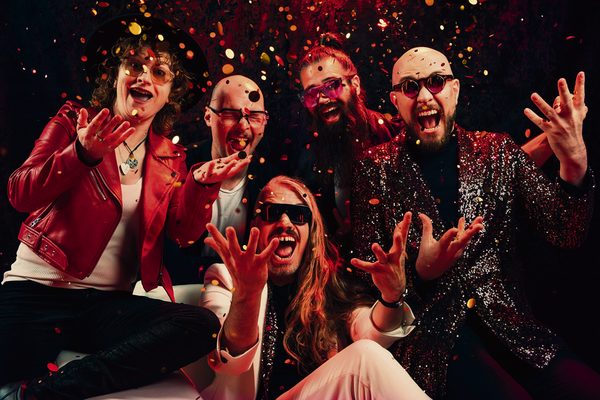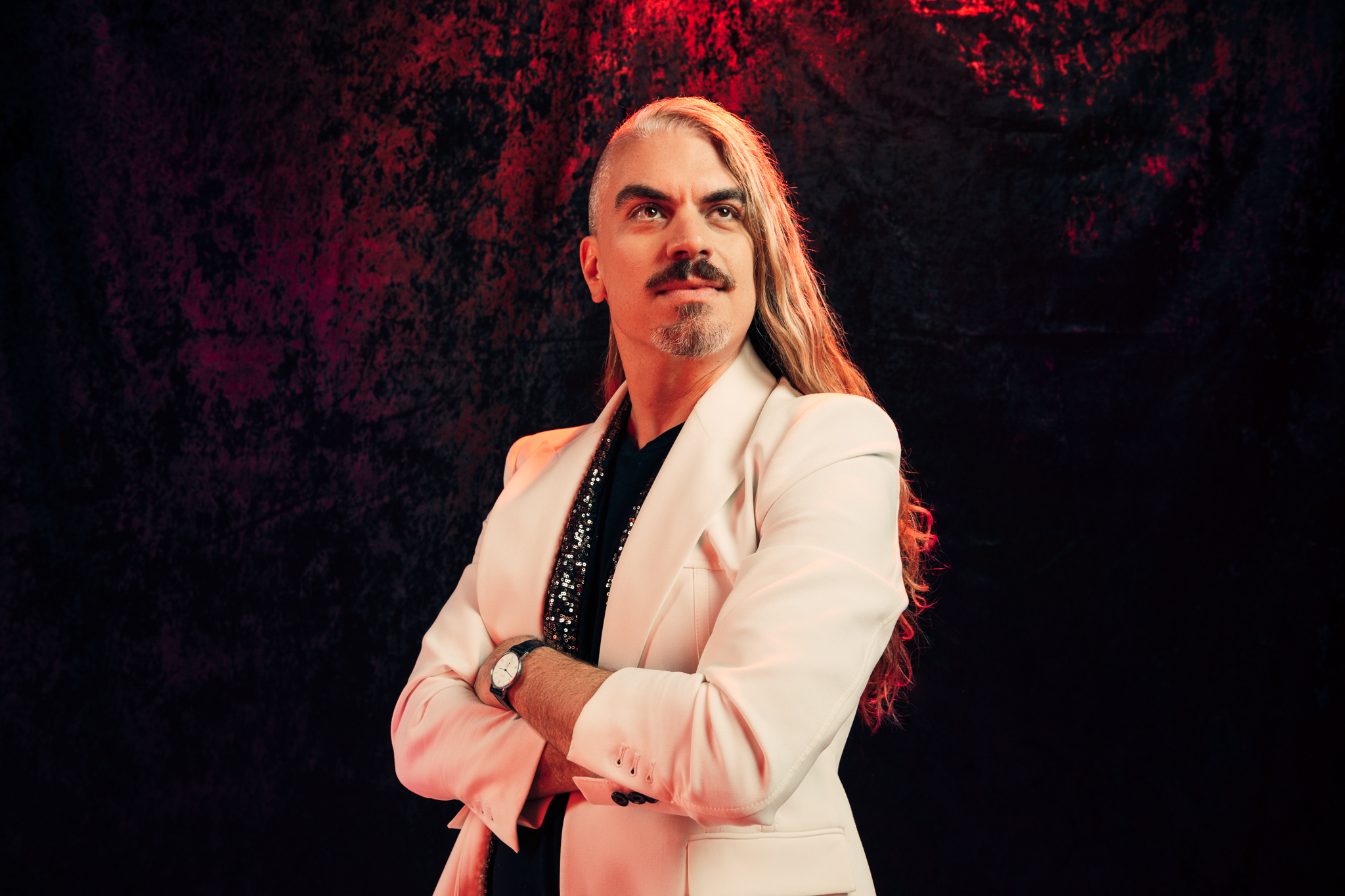Daniel Estrin isn’t a religious person. But, he says, “I don’t not identify as Jewish … I feel that being ‘Jew-ish’ is a significant part of my identity.”
The German-born lawyer and musician – yes, he’s both – came to Australia when he was 11 years old. Last week, alongside his synth-metal band, Voyager, he represented Australia at the Eurovision Song Contest. Voyager was the first group to represent the country.
“We were and are ambassadors for Australia, for heavy music and for bands generally, and it’s absolutely sensational that SBS decided to send us this year,” said Estrin, a huge Eurovision fan himself.
His love of music can be traced back to 1992, when Estrin and his family migrated to Australia. Being a German kid in an Australian school was tough at the time.
“The Russian/Jewish ancestry barely made it into the equation – the bullies’ minds would have exploded – they were too busy engraving swastikas into my locker,” he recalled. “So instead of playing sports, I hid in the music centre and listened to extreme metal.”
While he studied law, he didn’t really desire becoming a lawyer. Until he discovered immigration law, which he describes as “a niche that would allow me to combine my love for countries/capital cities/cultures, accents and absurd bureaucracy”.
And while law and heavy metal don’t necessarily seem to ‘match’, for Estrin it’s the perfect combination.
“I was never one of those kids who throw everything into the music – I was far too risk averse to do that, so the two-track ‘career’ suited me well,” he explained. He even managed to go on extended European tours with Voyager, describing his ability to do both to SBS News as a “left-brain, right-brain” situation.
“Immigration law is a lot about creative solutions as well as having a genuine interest in people and their journeys – one of the best parts of my job is connecting with people through language, culture and music,” he said. “I once had a client say he chose me because he had listened to my music and felt I would understand his case.”
“The Russian/Jewish ancestry barely made it into the equation – the bullies’ minds would have exploded – they were too busy engraving swastikas into my locker. So instead of playing sports, I hid in the music centre and listened to extreme metal.” Daniel Estrin
For Estrin, his ability to relate to others is important and, he believes, a lot of that comes from his cultural and ethnic makeup.
“[It’s] so multi-faceted that I can embrace every part of it,” he said. “The wonderful thing about it is that I can adapt and amplify any one of my identities depending on the circumstances – one minute I may be a full-blown Aussie talking about V8s or Sale of the Century, the next I can be totally engrossed in Jewish humour or enjoy a Russian/Ukrainian comedy sketch.”
When asked whether his Jewish ancestry influences him in any way, he explained that, mostly thanks to his father, he understands what being Jewish in the cultural sense is about.
“I feel ‘jewbilation’ when I meet other people of Jewish origin and share a lot of the idiosyncrasies with my fellow Ashkenazis (allergy to the outdoors and general Weltschmerz). I deeply treasure Jewish humour and the uplifting melancholy that comes with it,” he said, continuing to explain that his sister lives near Jerusalem so the geographical connection is there too. Estrin himself even went to Eurovision in Tel Aviv in 2019 – there’s that love of the singing competition shining through.
For Estrin, performing at Eurovision with Voyager was an honour, getting through to the final was the cherry on top.
“‘After this it’s all gravy,’ is what we all felt after getting through. That moment was extremely important to us because we felt we owed it to our fans and Australia to at least make it through,” he said. “The pride we felt when we found out we actually came first in our semifinal was out of this world – apparently we got the highest televote in the semifinals Australia has ever received.”
Representing Australia meant representing every part of the country, which is why the band carried the Australian, Aboriginal and Torres Strait Islander flags during the flag parade. While he explained that people at Eurovision were naturally curious about the tri-flag display, it was important and “very special to be able to acknowledge all parts of the country that we represent”, he said.
“We were also able to proudly display shirts from AARLI, a first nations designer label from WA and represent and showcase Indigenous talent. There was no question that we would always carry multiple flags.”

So, what is it about Eurovision that seems to captivate Australians? Estrin believes Australians simply love to party, and Eurovision is all about having fun.
“It’s one of the best spectacles the world has to offer and it’s a great way to spend 3am-5am on a Sunday morning, depending on where you are,” he said, sharing a wonderful anecdote from a backstage session while in Liverpool for the contest, that he refers to as “classic” Eurovision.
While being interviewed by a Lithuanian television show, Estrin was asked what he knew about their country.
“I noted that my first violin teacher was Martynas Svegzda von Bekker, to which the reporter’s jaw visibly dropped and he was completely discombobulated. ‘You know Martynas Svegzda von Bekker? He is so famous in our country,’ – such is the village that is the world,” he said.
And if there’s anything that beautifully portrays the village of the world, it’s surely Eurovision.
Voyager will shortly release their new album Fearless in Love. For more, visit voyagerau.com


comments